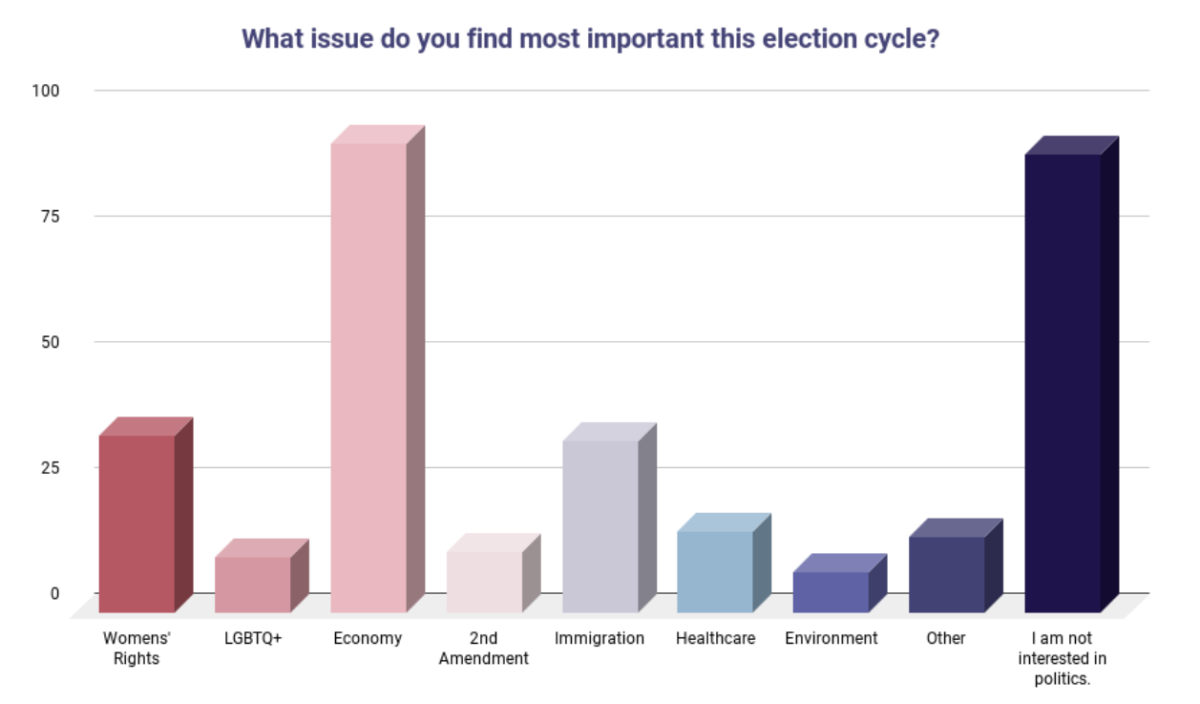Before students go out for winter breaks, academic stresses and social pressures typically rise, even resulting in seasonal depression for some. While addressing mental health can be a difficult journey, it is important for students to know that they are not alone in this feeling. Professional counselor and Marcus alum Dr. Ryan White wants students to know that it is okay to hurt or feel bad. On the pages that follow, he offers advice and insight on coping with seasonal depression.
Causes:
Seasonal depression is similar to typical depression in the sense that they exhibit the same symptoms. The main differences between the two are the causes.
When it is dark, the body typically creates melatonin, a hormone, to encourage sleep. The decreasing hours of sunlight during the winter disturbs the body’s internal clock which can make it produce too much melatonin. According to the National Institute of Mental Health, this prevents people from being able to adjust to seasonal changes, leading to differences in mood and behavior.
While this is a more scientific cause of seasonal depression, social pressures can also be contributing factors. As school semesters come to an end, upcoming finals inspire feelings of stress and anxiety in students.
“This is when we start seeing a little bit more low motivation because [students] maybe give up,” Dr. White said. “They don’t think they can bring up their grades to satisfy either their goals or their parent’s goals.”
Yet even after final exams are over, stress can follow teens into their winter break. Families typically get together around the holidays in order to celebrate. However, the poor dynamics between them can lead to a harmful environment.
“There are a lot of unhealthy habits that happen in the family unit,” Dr. White said. “A lot of the pressures that are in the adults get felt by the kids.”
Parents can help prevent negative feelings this holiday season by promoting healthier behaviors.
Prevention:
While challenges with mental health can manifest differently in everyone, common symptoms include withdrawal from loved ones and passions, negative self-talk, negative comments towards others, self-doubt, burnout, and high stress.
When these symptoms are overlooked, they can worsen over time. Dr. White emphasizes the importance of peers checking on each other to ensure struggles do not go unnoticed.
“Checking in, trying to notice these signs whenever you do, face-to-face, is really important,” Dr. White said. “Sometimes we get too involved with ourselves, and we might forget.”
However, Dr. White advises that in order to be there for others, people need to put their mental health first. Being emotionally and physically present for a friend requires making efforts for self-health. He likens this to the oxygen masks on airplanes.
“If the oxygen mask comes down, you’re supposed to put that oxygen mask on yourself before you put it on your kid,” Dr. White said. “How can you help others unless you help yourself first?”
Aside from peers, parents and guardians are in a unique position to notice early symptoms of depression in their children. Unfortunately, it can be difficult for parents to break through relationship barriers with their teens to get an accurate assessment of their mental health.
“If we don’t hear from our students or our kids, then we assume everything is fine,” Dr. White said. “Sometimes, ‘How was your day, honey?’ doesn’t go very far. Making sure that you are up to speed with what they have going on is extremely important.”
White encourages parents to be vulnerable enough with their kids to recognize that they need help and make them understand that it is okay to feel human, that these cycles are common.
“The one barrier that I see [to seeking help] the most is the acceptance of mental health within the family and not recognizing the signs that a teen might need help,” Dr. White said. “I think that’s a huge barrier if not taken seriously.”
Some common misconceptions surrounding seasonal depression are that those afflicted are simply “lazy” or “careless.” People who are struggling often believe that this is just the way life is, that there is nothing they can do. Ideas such as these can prevent people from asking for treatment they are in need of.
“There’s this stigma of, ‘Oh, just dust your knees off, get back up and get back in the game, You don’t have to talk about your feelings. Being vulnerable is weak,’” Dr. White said.
While the stigma surrounding mental health has significantly decreased in the last ten years, White said that more can be done to uphold that trend in schools.
“I think it falls on teachers and admin on how they are communicating,” Dr. White said. “How are they uplifting their students versus putting down their students or creating more stress?”
He explains that it is important for schools to create safe, open, and communicative environments for students in order to facilitate students that feel these symptoms.
“Allowing counselors to be more available, I think would be huge,” Dr. White said. “The most important thing is, on the campus level, buying into the importance of mental health and then reaching out to certain agencies to come in and help.”
How to Get Help:
If students feel comfortable, the counseling office has ways to help with mental health. Counselor Neena Johnson said she encourages students to reach out to them if they are struggling or another trusted adult.
“We want students to come to us if possible, just so we can either be a resource here for them,” Johnson said. “If we feel like there needs to be outside resources, then we can help connect people to other resources.”
Johnson said that teachers and peers can look for differences in behavior as a sign of mental health struggles.
“If there’s a shift in something and somebody sees a shift and just their mood or their overall attitude, then that could mean something’s going on,” Johnson said.
While there is no simple cure for seasonal depression, there are certain remedies to alleviate stress and other symptoms. Dr. White recommends sleep, proper nutrition, exercise, and positive social interactions.
Sleep:
With the right amount of sleep, the body can begin the day feeling well-rested and focused. Sleep deficiency causes people to have worsened emotional reactions. By contrast, too much sleep interrupts the body’s production of serotonin, a hormone that helps to regulate mood. According to UCLA Health, teens should get around 8-10 hours of sleep per night for a healthy amount.
“The very most important thing for mental health is sleep,” Dr. White said. “It tends to be a badge of honor to stay up until 3 or 4.”
Nutrition:
The gut, often called “the second brain,” helps manage the production of serotonin to regulate mood. However, the gut requires healthier foods in order to improve mood and potentially impact depression.
“If our gut is healthy, a lot of times our mind frame and the way we think through problems is a lot healthier as well,” Dr. White said.
While fast foods are abundant and can make for an easy meal, they can be damaging to mental health because they do not contain necessary vitamins. Dr. White recommends more fresh foods being available to students at school, such as fruits and vegetables versus processed foods.
Exercise:
As commonly known, exercise releases endorphins in the body, a hormone that helps reduce stress. Dr. White says that more opportunities for exercise and fresh aids should be in schools.
“It could just be a teacher that takes their class outside for fresh air,” Dr. White said, “Something about being in fresh air instead of a closed environment, listening to nature, just listening and quieting ourselves is a huge thing.”
According to the CDC, teens should get about 60 minutes of exercise every day. Movement, as well as play, helps to increase confidence and improve mood.
“Play is so important for our mental health, because we get to release some of that stress and just see our personalities come forth,” Dr. White said. “When we are using our personalities around people that we are safe around, we really do feel a sense of worth, and we feel so much better about the stresses that we have.”
Positive Social Interactions:
While sleep, nutrition, and exercise are steps people can take to improve their own mental health, socializing can offer emotional support and encouragement to all parties.
“I think the school could promote positive social interaction instead of online interaction,” Dr. White said. “I think face-to-face communication, because we get to see the nonverbals. What we type down might be different than what we’re really feeling.”
Positive interactions with others improve a sense of belonging and self-esteem, which is critical to combating seasonal depression.








